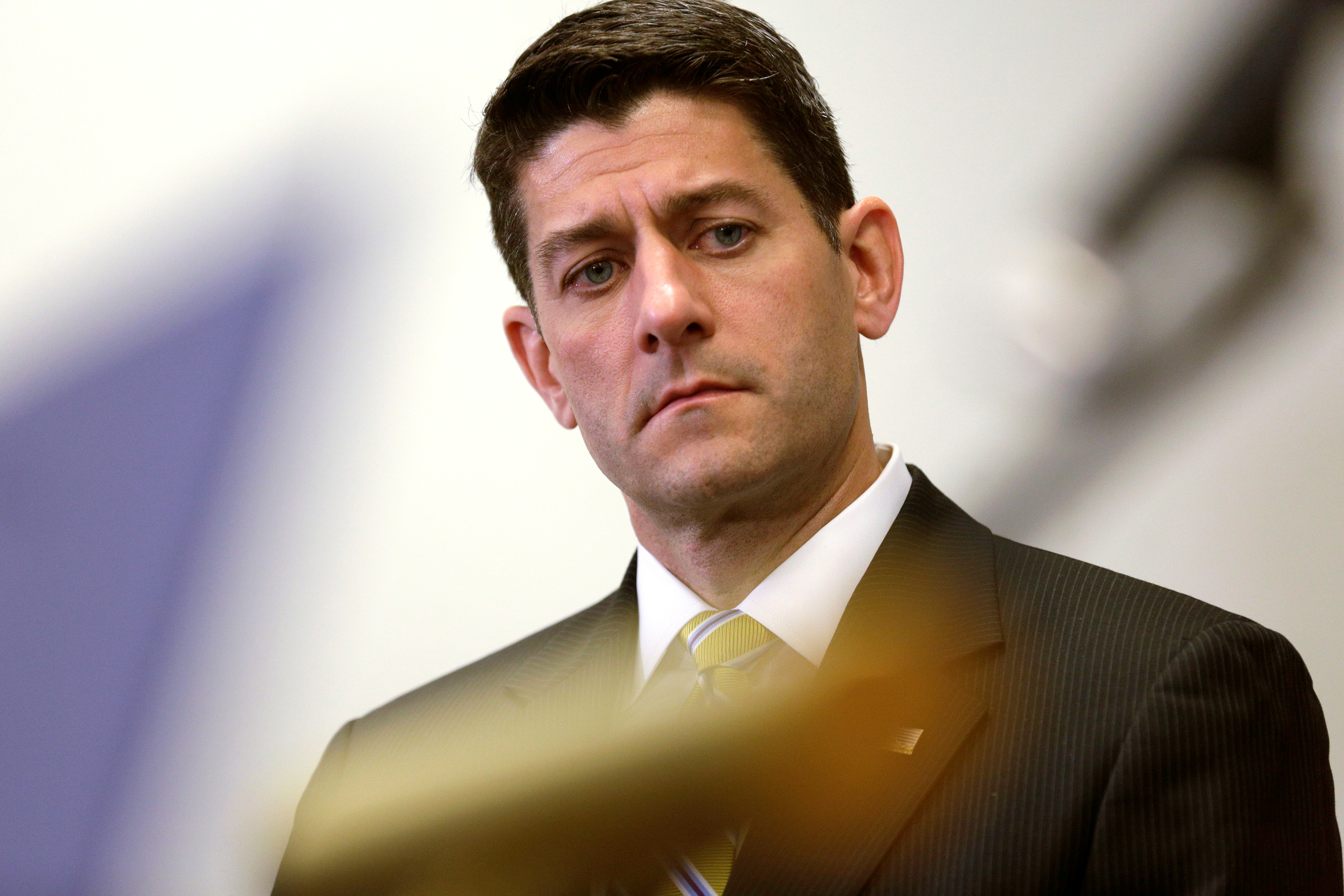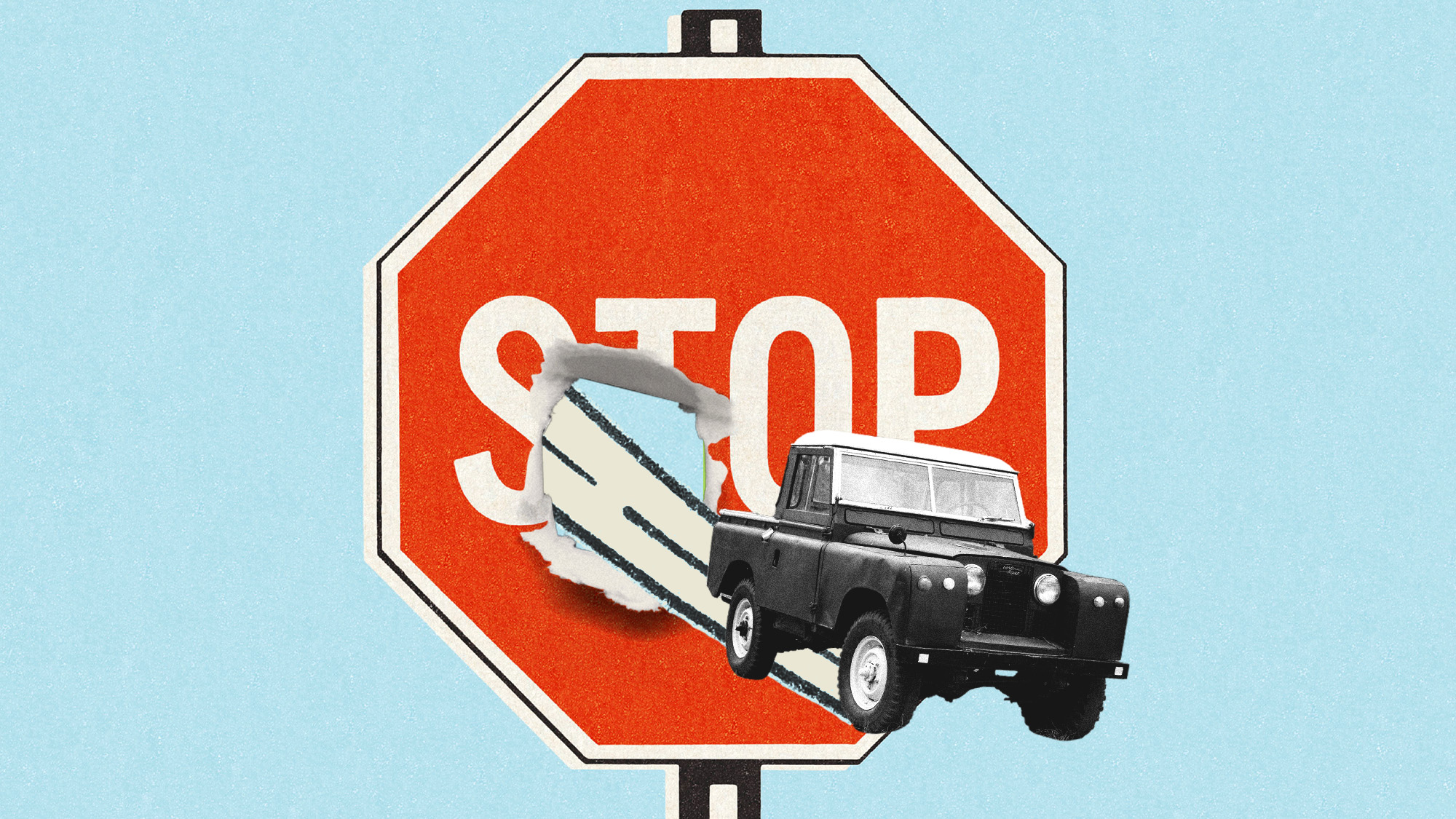5 reasons why Paul Ryan's Dodd-Frank overhaul is terrible
Here's another awful 'repeal and replace' bill the GOP is planning


Between the Trump administration's grand plans for infrastructure and the looming congressional testimony of former FBI Director James Comey, this is shaping up to be quite a week. And just in case that wasn't enough, the House also plans to vote on whether to upend U.S. financial regulation.
The specific bill in question is the Financial CHOICE Act, spearheaded by Rep. Jeb Hensarling (R-Texas), the chairman of the House Financial Services Committee. It's basically an effort to repeal and replace Dodd-Frank, the sweeping financial regulation bill passed by President Obama and the Democrats in July 2010, two years after the financial crisis plunged the economy into a catastrophic recession.
House Speaker Paul Ryan (R-Wis.) is definitely a fan. On Monday, he released a statement entitled "5 Reasons to Support the Financial CHOICE Act." Unfortunately, Ryan's five reasons run from confused and misguided to downright underhanded. The CHOICE Act is just a terrible bill.
The Week
Escape your echo chamber. Get the facts behind the news, plus analysis from multiple perspectives.

Sign up for The Week's Free Newsletters
From our morning news briefing to a weekly Good News Newsletter, get the best of The Week delivered directly to your inbox.
From our morning news briefing to a weekly Good News Newsletter, get the best of The Week delivered directly to your inbox.
And here, appropriately, are five reasons why:
1. The CHOICE Act doesn't actually replace Dodd-Frank with anything. The core idea behind Ryan's bill is a trade-off: Banks don't have to obey many of Dodd-Frank's rules if their equity from investors is at least 10 percent of their assets. Higher equity ratios give banks more cash on hand to cushion their finances in case of catastrophe, so the idea isn't inherently nuts.
Unfortunately, to achieve the desired result, the CHOICE Act's 10 percent threshold would need to be two or three times higher. On top of that, risks can come at a bank's balance sheet from multiple directions, and high equity requirements just don't account for all of them. Lastly, the practical design of the CHOICE features a mediocre enforcement mechanism, so banks might simply not stick to their 10 percent commitment anyway.
2. It's based on a lie about "Too Big To Fail." "Dodd-Frank actually made [too big to fail] the law of the land," Ryan wrote. This is a common conservative refrain, based on two claims. First, Dodd-Frank has a system for identifying "systemically important" institutions and subjecting them to tougher regulations. Critics contend banks will want to be labeled "systemically important," because then they know they'll never be allowed to fail. Except we now have plenty of data on banks' behavior under Dodd-Frank, and it's clear they avoid the label like the plague.
A free daily email with the biggest news stories of the day – and the best features from TheWeek.com
Dodd-Frank also created something called "orderly liquidation authority" (OLA) — basically a tool regulators can use to quickly dismantle a failing bank while protecting the rest of the system. Ryan and his cohorts characterize this as a bailout by another name. But that's ridiculous: OLA is specifically designed to make shareholders and creditors bear the cost of unwinding the bank. Management and board members would be fired and lose a lot of money. The bank would die. It would be an exceedingly strange "bailout."
3. It's also based on a lie about community banks. Ryan claims Dodd-Frank placed "untenable burdens on community banks across the country." Those smaller banks have historically provided the bulk of home mortgages and small-business loans, but Dodd-Frank's critics argue the law's myriad rules cut off that flow of credit. "That has hit Main Street hard," Ryan said.
Except lending has grown relentlessly since Dodd-Frank, and is almost back to its historical highs as a share of the economy. Bank profits are doing just fine, too. So consumers have plenty of access to credit.
Ryan is right that community banks themselves are dying, but they've been dying for several decades and the passage of Dodd-Frank caused hardly a blip in the trend line. Furthermore, the main reason they're dying is that inequality and wage stagnation, combined with the mass accumulations of wealth among the 1 percent, has driven interest rates permanently into the basement. And that creates a much tougher environment for small banks to thrive.
4. The CHOICE Act guts consumer protection. Possibly Dodd-Frank's biggest success was the creation of the Consumer Financial Protection Bureau (CFPB), which polices consumer financial products for predatory and exploitative practices. Conservatives have had it in for the CFPB for a while, and Ryan decries it as "unchecked, unconstitutional, and unaccountable." But the design of the CFPB's leadership and financing, while unusually strong, is not unique among government agencies.
Furthermore, the myriad ways the CHOICE Act would shrink the CFPB's jurisdiction and dismantle its regulatory tools (most remarkably, it gets rid of the CFPB's public database of consumer complaints) makes it clear the law's purpose isn't expanding freedom for consumers — it's expanding freedom for financial firms at consumers' expense.
5. Finally, it's based on a pernicious misunderstanding of the economy. Add all the justifications for the CHOICE Act up, and you actually get a somewhat coherent philosophy: Under capitalism, the best way to make money is often to already have money. So as wage stagnation, inequality, and financial insecurity spread, it becomes harder for traditional financial products — designed on the assumption of a middle-class economy where wealth is broadly shared — to work for most Americans. So the financial industry must be allowed to offer more outlandish, risky, and predatory forms of credit to keep capital flowing to the lower reaches of the economy.
The other solution, of course, would be to use tools like unions, regulations, monetary policy, and fiscal policy to cut the rich down to size, redistribute wealth, empower workers, and raise incomes. But that's something the GOP would never contemplate. So the CHOICE Act is it.
Jeff Spross was the economics and business correspondent at TheWeek.com. He was previously a reporter at ThinkProgress.
-
 The Night Manager series two: ‘irresistible’ follow-up is ‘smart, compelling’ TV
The Night Manager series two: ‘irresistible’ follow-up is ‘smart, compelling’ TVThe Week Recommends Second instalment of the spy thriller keeps its ‘pace’, ‘intrigue’ and ‘sly sexiness’
-
 11 hotels opening in 2026 to help you reconnect with nature
11 hotels opening in 2026 to help you reconnect with natureThe Week Recommends Find peace on the beaches of Mexico and on a remote Estonian island
-
 Zimbabwe’s driving crisis
Zimbabwe’s driving crisisUnder the Radar Southern African nation is experiencing a ‘public health disaster’ with one of the highest road fatality rates in the world
-
 Bari Weiss’ ‘60 Minutes’ scandal is about more than one report
Bari Weiss’ ‘60 Minutes’ scandal is about more than one reportIN THE SPOTLIGHT By blocking an approved segment on a controversial prison holding US deportees in El Salvador, the editor-in-chief of CBS News has become the main story
-
 Has Zohran Mamdani shown the Democrats how to win again?
Has Zohran Mamdani shown the Democrats how to win again?Today’s Big Question New York City mayoral election touted as victory for left-wing populists but moderate centrist wins elsewhere present more complex path for Democratic Party
-
 Millions turn out for anti-Trump ‘No Kings’ rallies
Millions turn out for anti-Trump ‘No Kings’ ralliesSpeed Read An estimated 7 million people participated, 2 million more than at the first ‘No Kings’ protest in June
-
 Ghislaine Maxwell: angling for a Trump pardon
Ghislaine Maxwell: angling for a Trump pardonTalking Point Convicted sex trafficker's testimony could shed new light on president's links to Jeffrey Epstein
-
 The last words and final moments of 40 presidents
The last words and final moments of 40 presidentsThe Explainer Some are eloquent quotes worthy of the holders of the highest office in the nation, and others... aren't
-
 The JFK files: the truth at last?
The JFK files: the truth at last?In The Spotlight More than 64,000 previously classified documents relating the 1963 assassination of John F. Kennedy have been released by the Trump administration
-
 'Seriously, not literally': how should the world take Donald Trump?
'Seriously, not literally': how should the world take Donald Trump?Today's big question White House rhetoric and reality look likely to become increasingly blurred
-
 Will Trump's 'madman' strategy pay off?
Will Trump's 'madman' strategy pay off?Today's Big Question Incoming US president likes to seem unpredictable but, this time round, world leaders could be wise to his playbook
